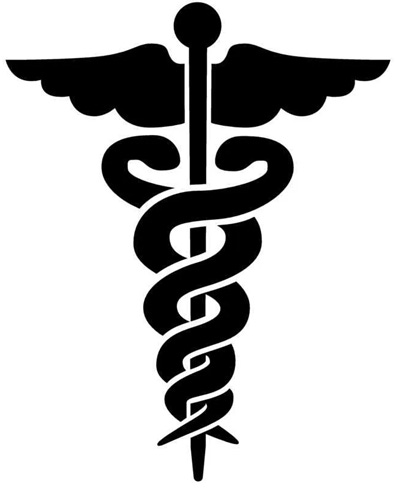Ozempic and Wegovy weight loss drugs are injectable LIZARD VENOM PEPTIDES that may unleash a devastating wave of organ failure… side effects align with symptoms of SNAKE BITES
Mike Adams: Those who take the prescription medications, bioweapons jabs, chemotherapy poisons & other toxic substances pushed by this medical institution of death very often... end up dead.
According to a Newsweek poll published in May, 2024, there are now 15.5 million Americans who have used or are using Ozempic, Wegovy or Saxenda, all of which are injectable "weight loss medications" that actually consists of synthesized peptides originally patterned from the venom of the Gila Monster reptile. See, "We wouldn't have Ozempic without Gila monsters — their hunger-regulating venom inspired weight-loss drugs" from BusinessInsider.com which states:
Gila monsters' venom has a compound in it that can regulate hunger. It's similar to a hormone people produce in our intestines — but the lizard version is longer-acting. The find led to the development of a new class of obesity and diabetes drugs, including Ozempic.
These drugs achieve their weight loss results by paralyzing the vagus nerve. The vagus nerve is the longest and single most important nerve in the human body, originating in the brain and attaching to many major organs in the body to coordinate organ stimuli for proper organ function such as digestion, circulation, respiration, cognitive function and more. The reason these reptile venom drugs make people lose weight is because they interfere with hunger signals which are communicated from the brain to the digestive system, including the stomach.
Unfortunately, as we are about to find out, these venom peptides, when repeatedly taken over a long duration, can also cause extreme, permanent damage to the vagus nerve, impacting the normal function of all the major organ systems in the body. The resulting symptoms almost perfectly resemble the systemic damage caused by venomous snake bites
The Vagus Nerve - what it does
According to Cleveland Clinic, Medical News Today and Medscape, the vagus nerve is responsible for all the following
Digestion: The vagus nerve regulates digestion, appetite, and satiety, and helps to control the movement of food through the digestive system.
Heart rate and blood pressure: The vagus nerve helps to regulate heart rate and blood pressure, and is involved in the parasympathetic nervous system’s response to stress.
Respiration: The vagus nerve helps to regulate breathing and is involved in the control of respiration.
Swallowing and speech: The vagus nerve is responsible for the coordination of swallowing and speech.
Immune system: The vagus nerve plays a role in the regulation of the immune system and is involved in the response to inflammation.
Gastrointestinal system: The vagus nerve is involved in the regulation of the gastrointestinal system, including the control of gut motility and secretion.
Remember this list when you realize that 15.5 million Americas are injecting themselves with this reptilian venom.
Damaging the vagus nerve does cause loss of appetite. So does radiation poisoning and chemotherapy poisoning, by the way. This loss of appetite is considered a success by the doctor and most patients, few of whom bother to consider the potentially devastating long-term effects of long-term reptilian peptide poisoning of the most important nerve in their body.
Gila Monster venom is designed to poison its victims and halt the functioning of their major organs, rendering the victim dead and providing the next meal for the Gila Monster. Humans are the only species on the entire planet that poisons itself with Gila Monster venom and calls it "medicine." When the vagus nerve is damaged, its human victims begin to exhibit symptoms. Those symptoms include:
Acid reflux (GERD): The vagus nerve helps regulate the lower esophageal sphincter, and dysfunction can lead to acid reflux and gastroesophageal reflux disease (GERD).
Changes in heart rate and blood pressure: The vagus nerve helps regulate heart rate and blood pressure, and dysfunction can lead to changes in these vital signs.
Difficulty swallowing or loss of gag reflex: The vagus nerve is involved in the coordination of swallowing and speech, and dysfunction can lead to difficulty swallowing or loss of gag reflex.
Dizziness or lightheadedness: The vagus nerve helps regulate blood pressure and heart rate, and dysfunction can lead to dizziness or lightheadedness.
Fatigue: The vagus nerve plays a role in regulating the body’s energy levels, and dysfunction can lead to fatigue.
Nausea and vomiting: The vagus nerve helps regulate the digestive system, and dysfunction can lead to nausea and vomiting.
Orthostatic hypotension: The vagus nerve helps regulate blood pressure, and dysfunction can lead to orthostatic hypotension, a condition characterized by a sudden drop in blood pressure when standing up.
Syncope (fainting): The vagus nerve helps regulate blood pressure and heart rate, and dysfunction can lead to syncope or fainting.
Tachycardia (rapid heart rate): The vagus nerve helps regulate heart rate, and dysfunction can lead to tachycardia or rapid heart rate.
The fact that 15.5 million Americans are injecting themselves with the venom peptides that can cause these disorders means we are about to witness a devastating wave of vagus nerve damage across the population, leading to an explosion in heart problems, blood pressure, fainting, hypotension, nausea and more.
Wegovy.com website confirms these side effects
The Wegovy.com website, published by the manufacturer of Wegovy, lists all the following side effects which almost perfectly align with the known side effects of vagus nerve damage: (emphasis added)
Wegovy may cause serious side effects, including:
inflammation of your pancreas (pancreatitis). Stop using Wegovy and call your healthcare provider right away if you have severe pain in your stomach area (abdomen) that will not go away, with or without vomiting. You may feel the pain from your abdomen to your back
gallbladder problems. Wegovy may cause gallbladder problems, including gallstones. Some gallstones may need surgery. Call your healthcare provider if you have symptoms, such as pain in your upper stomach (abdomen), fever, yellowing of the skin or eyes (jaundice), or clay- colored stools
increased risk of low blood sugar (hypoglycemia), especially those who also take medicines for diabetes such as insulin or sulfonylureas. This can be a serious side effect. Talk to your healthcare provider about how to recognize and treat low blood sugar and check your blood sugar before you start and while you take Wegovy. Signs and symptoms of low blood sugar may include dizziness or light-headedness, blurred vision, anxiety, irritability or mood changes, sweating, slurred speech, hunger, confusion or drowsiness, shakiness, weakness, headache, fast heartbeat, or feeling jittery
kidney problems (kidney failure). In people who have kidney problems, diarrhea, nausea, and vomiting may cause a loss of fluids (dehydration), which may cause kidney problems to get worse. It is important for you to drink fluids to help reduce your chance of dehydration
serious allergic reactions. Stop using Wegovy and get medical help right away, if you have any symptoms of a serious allergic reaction, including swelling of your face, lips, tongue, or throat; problems breathing or swallowing; severe rash or itching; fainting or feeling dizzy; or very rapid heartbeat
change in vision in people with type 2 diabetes. Tell your healthcare provider if you have changes in vision during treatment with Wegovy
increased heart rate. Wegovy can increase your heart rate while you are at rest. Tell your healthcare provider if you feel your heart racing or pounding in your chest and it lasts for several minutes
depression or thoughts of suicide. You should pay attention to any mental changes, especially sudden changes in your mood, behaviors, thoughts, or feelings. Call your healthcare provider right away if you have any mental changes that are new, worse, or worry youThe most common side effects of Wegovy may include: nausea, diarrhea, vomiting, constipation, stomach (abdomen) pain, headache, tiredness (fatigue), upset stomach, dizziness, feeling bloated, belching, low blood sugar in people with type 2 diabetes, gas, stomach flu, heartburn, and runny nose or sore throat.
The Wegovy website also says that Wegovy may cause "thyroid tumors, including cancer." Dr. Bryan Ardis told me in a recent interview that Gila Monster venom peptides would unleash a wave of cancers across America.
Brighteon.com/adce5659-e11c-46b3-9665-081c5f6daa14
Ozempic.com website list of side effects
If you go to the Ozempic.com website, you will find a list of side effects publicly stated by the manufacturer of Ozempic (semaglutide injection):
Ozempic may cause serious side effects, including:
Possible thyroid tumors, including cancer. Tell your health care provider if you get a lump or swelling in your neck, hoarseness, trouble swallowing, or shortness of breath. These may be symptoms of thyroid cancer. In studies with rodents, Ozempic and medicines that work like Ozempic caused thyroid tumors, including thyroid cancer. It is not known if Ozempic will cause thyroid tumors or a type of thyroid cancer called medullary thyroid carcinoma (MTC) in people.
Do not use Ozempic if you or any of your family have ever had MTC, or if you have an endocrine system condition called Multiple Endocrine Neoplasia syndrome type 2 (MEN 2).
Ozempic may cause serious side effects, including:
inflammation of your pancreas (pancreatitis). Stop using Ozempic and call your health care provider right away if you have severe pain in your stomach area (abdomen) that will not go away, with or without vomiting. You may feel the pain from your abdomen to your back.
changes in vision. Tell your health care provider if you have changes in vision during treatment with Ozempic.
low blood sugar (hypoglycemia). Your risk for getting low blood sugar may be higher if you use Ozempic with another medicine that can cause low blood sugar, such as a sulfonylurea or insulin. Signs and symptoms of low blood sugar may include: dizziness or lightheadedness, blurred vision, anxiety, irritability or mood changes, sweating, slurred speech, hunger, confusion or drowsiness, shakiness, weakness, headache, fast heartbeat, and feeling jittery.
kidney problems (kidney failure). In people who have kidney problems, diarrhea, nausea, and vomiting may cause a loss of fluids (dehydration), which may cause kidney problems to get worse. It is important for you to drink fluids to help reduce your chance of dehydration.
serious allergic reactions. Stop using Ozempic and get medical help right away if you have any symptoms of a serious allergic reaction, including swelling of your face, lips, tongue, or throat; problems breathing or swallowing; severe rash or itching; fainting or feeling dizzy; or very rapid heartbeat.
gallbladder problems. Gallbladder problems have happened in some people who take Ozempic. Tell your health care provider right away if you get symptoms which may include: pain in your upper stomach (abdomen), fever, yellowing of the skin or eyes (jaundice), or clay-colored stools.
The most common side effects of Ozempic may include nausea, vomiting, diarrhea, stomach (abdominal) pain, and constipation.











